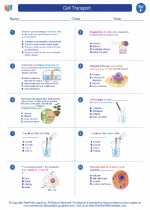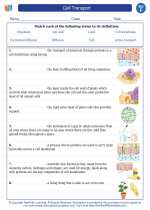Symptoms in Science
In science, a symptom is a physical or mental feature that is regarded as indicating a condition or disease. Symptoms are often used as an indication of an underlying problem or issue within a biological system, and they are important for diagnosis and treatment.
Types of Symptoms
Symptoms can manifest in various ways, and they can be categorized into physical, mental, or emotional symptoms. Physical symptoms are related to the body and its functions, such as pain, fatigue, or changes in appearance. Mental and emotional symptoms, on the other hand, are related to cognitive and psychological processes, such as confusion, anxiety, or mood swings.
Functions of Symptoms
Symptoms serve as crucial indicators for identifying and understanding health issues and diseases. They provide valuable information for healthcare professionals to make accurate diagnoses and develop appropriate treatment plans. Additionally, symptoms can also serve as warning signs, prompting individuals to seek medical attention and take necessary actions to address their health concerns.
Studying Symptoms
When studying symptoms in science, it is important to consider various factors such as the onset, duration, intensity, and frequency of the symptoms. Additionally, researchers may also investigate the underlying physiological or psychological mechanisms that contribute to the manifestation of specific symptoms. Understanding the science behind symptoms can lead to advancements in medical diagnostics and the development of effective treatments.
Study Guide on Symptoms
- Define the term "symptom" in the context of science.
- Discuss the significance of symptoms in the diagnosis and treatment of diseases.
- Compare and contrast physical, mental, and emotional symptoms, providing examples of each.
- Explain the potential impact of ignoring or neglecting symptoms on an individual's health.
- Research a specific disease and its associated symptoms, and present your findings to the class.
By understanding the role of symptoms in science, we can appreciate their importance in maintaining health and well-being.
.◂Science Worksheets and Study Guides Sixth Grade. Cell Transport

 Worksheet/Answer key
Worksheet/Answer key
 Vocabulary/Answer key
Vocabulary/Answer key
 Vocabulary/Answer key
Vocabulary/Answer key
